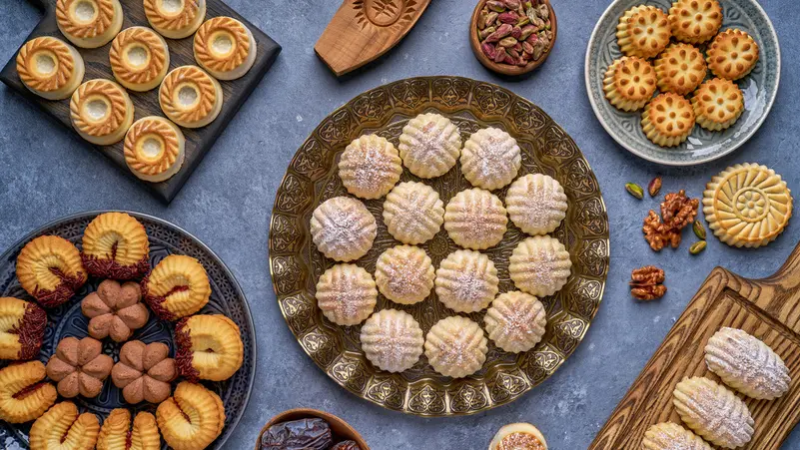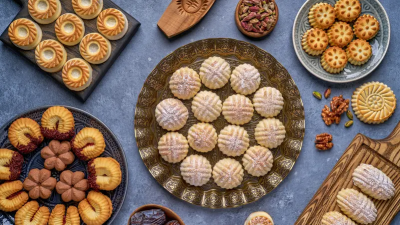Only a few days remain until the end of the blessed month of Ramadan, and Eid Al-Fitr will soon be upon us. As the countdown to the end of fasting begins, preparations in most homes are underway to celebrate the holiday with decorations and the preparation of delicious sweets. However, nutrition experts consistently warn about the need to moderate the consumption of Eid sweets to avoid weight gain during these happy days often spent with family and friends.
Eid Al-Fitr typically brings with it various famous Arabic sweets, such as maamoul, cakes, or "Kahk Al-Eid" as it's called in Egypt, along with all types of Eastern and Western desserts and cookies. Despite the popularity of these sweets, one must be aware of their potential health risks and impact on fitness if consumed excessively. Arabic sweets often contain large amounts of sugar, fats, and carbohydrates, making them unsuitable for people with diabetes or obesity.
Maamoul is one of the most famous types of Arabic sweets during the holiday season. It is considered healthier due to its protein, dietary fiber, and carbohydrate content, and it is baked rather than fried. The filling, whether it contains dates or nuts, enhances its nutritional value; however, the calorie count in maamoul is high due to its main ingredients: sugar, butter, and flour.
Before indulging in maamoul one piece after another, it's essential to note that a date-filled maamoul contains 180 calories, while a pistachio-filled one has 200 calories, and one filled with walnuts contains 220 calories. It is recommended to consume only one maamoul per day and to avoid those coated in sugar.
If you enjoy other types of sweets, be aware that a single cookie contains at least 60 calories, while a piece of ghriba has 150 calories, and a petit four has 60 calories. However, if it is dipped in chocolate and nuts, the calorie count can double per piece.
When it comes to traditional sweets like baklava, the crushed nut filling (such as cashews and pistachios) is popular, but the enormous amounts of sugar used in its preparation make baklava potentially deceptive in size and harmful, especially for diabetics. It may seem like small pieces won't have much impact, yet they are loaded with fats and sugars. One piece of baklava contains 60% fat, 34% carbohydrates, and only 6% protein, bringing its calorie count to 334.
Health experts recommend substituting sugar syrup with honey, diluted with water, and using healthy canola oil instead of ghee or butter when preparing these sweets. Care must also be taken to avoid sweets made with hydrogenated oils due to their health risks.
These were just simple examples for you to think carefully before sitting in front of a plate of Eid sweets and starting to indulge in tempting small pieces. The advice of doctors remains consistent: moderation is key when it comes to consuming sweets.




